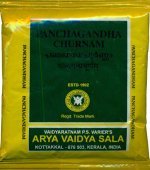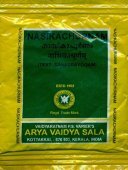Valaka, Vaḷakā, Valakā, Valāka, Vālaka: 18 definitions
Introduction:
Valaka means something in Hinduism, Sanskrit, Marathi, biology. If you want to know the exact meaning, history, etymology or English translation of this term then check out the descriptions on this page. Add your comment or reference to a book if you want to contribute to this summary article.
The Sanskrit term Vaḷakā can be transliterated into English as Valaka or Valiaka, using the IAST transliteration scheme (?).
In Hinduism
Purana and Itihasa (epic history)
Source: archive.org: Puranic EncyclopediaValāka (वलाक).—(BALĀKA). A forester. (For further details see under Balāka).

The Purana (पुराण, purāṇas) refers to Sanskrit literature preserving ancient India’s vast cultural history, including historical legends, religious ceremonies, various arts and sciences. The eighteen mahapuranas total over 400,000 shlokas (metrical couplets) and date to at least several centuries BCE.
Ayurveda (science of life)
Cikitsa (natural therapy and treatment for medical conditions)
Source: Ancient Science of Life: Botanical identification of plants described in Mādhava CikitsāVālaka (वालक) (or Hrīvera, Aṃbu, Jaladhara, Udīcya) refers to the medicinal plant Coleus vettiveroides K.C. Jacob, and is used in the treatment of atisāra (diarrhoea), according to the 7th century Mādhavacikitsā chapter 2. Atisāra refers to a condition where there are three or more loose or liquid stools (bowel movements) per day or more stool than normal. The second chapter of the Mādhavacikitsā explains several preparations [including Vālaka] through 60 Sanskrit verses about treating this problem.
Kalpa (Formulas, Drug prescriptions and other Medicinal preparations)
Source: Shodhganga: Edition translation and critical study of yogasarasamgrahaVālaka (वालक) [or Vāḷaka] is another name for “Ambu” and is dealt with in the 15th-century Yogasārasaṅgraha (Yogasara-saṅgraha) by Vāsudeva: an unpublished Keralite work representing an Ayurvedic compendium of medicinal recipes. The Yogasārasaṃgraha [mentioning vālaka] deals with entire recipes in the route of administration, and thus deals with the knowledge of pharmacy (bhaiṣajya-kalpanā) which is a branch of pharmacology (dravyaguṇa).
Agriculture (Krishi) and Vrikshayurveda (study of Plant life)
Source: Shodhganga: Drumavichitrikarnam—Plant mutagenesis in ancient IndiaVālaka (वालक) (identified with Aporosa lindleyana) is used in various bio-organical recipes for plant mutagenesis such as manipulating the scent of flowers, according to the Vṛkṣāyurveda by Sūrapāla (1000 CE): an encyclopedic work dealing with the study of trees and the principles of ancient Indian agriculture.—Accordingly, “Fragrance of the blossom can be changed by filling (the base near) the roots (pūrṇa-mūla) of the trees with the earth scented with the desired fragrance and then fed with water mixed with Cyperus rotundus, Erythrina stricta, Valeriana wallichii, Aporosa lindleyana [e.g., Vālaka] and Cinnamomum tamala”.

Āyurveda (आयुर्वेद, ayurveda) is a branch of Indian science dealing with medicine, herbalism, taxology, anatomy, surgery, alchemy and related topics. Traditional practice of Āyurveda in ancient India dates back to at least the first millenium BC. Literature is commonly written in Sanskrit using various poetic metres.
Biology (plants and animals)
Source: Wisdom Library: Local Names of Plants and DrugsValaka in the Sanskrit language is the name of a plant identified with Pavonia odorata Willd. from the Malvaceae (Mallow) family. For the possible medicinal usage of valaka, you can check this page for potential sources and references, although be aware that any some or none of the side-effects may not be mentioned here, wether they be harmful or beneficial to health.
Source: Google Books: CRC World Dictionary (Regional names)Valaka in India is the name of a plant defined with Pavonia odorata in various botanical sources. This page contains potential references in Ayurveda, modern medicine, and other folk traditions or local practices It has the synonym Hibiscus oligosandrus Buch-Ham. (among others).
Example references for further research on medicinal uses or toxicity (see latin names for full list):
· Oesterreichische Botanische Zeitschrift (1863)
· Monadelphiae Classis Dissertationes Decem (1786)
· Species Plantarum. (1822)
· Flora of the British Ind. (1874)
· Taxon (1980)
· Blumea (1966)
If you are looking for specific details regarding Valaka, for example diet and recipes, pregnancy safety, health benefits, side effects, extract dosage, chemical composition, have a look at these references.

This sections includes definitions from the five kingdoms of living things: Animals, Plants, Fungi, Protists and Monera. It will include both the official binomial nomenclature (scientific names usually in Latin) as well as regional spellings and variants.
Languages of India and abroad
Marathi-English dictionary
Source: DDSA: The Molesworth Marathi and English Dictionaryvaḷakā (वळका).—m (vaḷaṇēṃ) Wriggling (as of worms, maggots &c.) Hence Swarming plentifulness and brisk movements (as of fleas, bugs &c.) 2 Impatient eagerness; intense longing. Rather a vulgar word, and used much as khāja, kaṇḍū, khuma- khuma &c. with the power of the word Itching (to be at something); as bōlaṇyācā -lihiṇyācā -māraṇyā- cā va0. kharajēcā va0 An itching fit under the disease Itch.
--- OR ---
vāḷakā (वाळका).—a (vāḷaṇēṃ) Dried up, shriveled, of which the moisture, succulence, or sappiness is departed. 2 Thin, meagre, lean or spare, i. e. thin or meagre originally.
Source: DDSA: The Aryabhusan school dictionary, Marathi-Englishvaḷakā (वळका).—m Wriggling. Impatient eager- ness.
--- OR ---
vāḷakā (वाळका).—a Dried up; thin, meagre.
Marathi is an Indo-European language having over 70 million native speakers people in (predominantly) Maharashtra India. Marathi, like many other Indo-Aryan languages, evolved from early forms of Prakrit, which itself is a subset of Sanskrit, one of the most ancient languages of the world.
Sanskrit dictionary
Source: DDSA: The practical Sanskrit-English dictionaryValaka (वलक).—A procession.
Derivable forms: valakam (वलकम्).
--- OR ---
Valāka (वलाक).—See बलाक (balāka).
Derivable forms: valākaḥ (वलाकः).
--- OR ---
Vālaka (वालक).—See, बार्ह, बार्हद्रथ, बार्हद्रथि, बार्हस्पत, बार्हस्पत्य, बार्हिण, बाल, बालक (bārha, bārhadratha, bārhadrathi, bārhaspata, bārhaspatya, bārhiṇa, bāla, bālaka).
See also (synonyms): vārha, vārhadratha, vārhadrathi, vārhaspata, vārhasatypa, vārhiṇa, vāla.
Source: Cologne Digital Sanskrit Dictionaries: Edgerton Buddhist Hybrid Sanskrit DictionaryValaka (वलक).—(1) m., see s.v. eluka 1; (2) nt., finger-ring: Mahāvyutpatti 6027 (so also Mironov; v.l. Kyoto ed. bālakam, perhaps read vālakam?) = Tibetan sor gdub.
--- OR ---
Vālaka (वालक).—(1) nt. (= Sanskrit Lex. id.) finger-ring, perhaps to be read Mahāvyutpatti 6027 for valaka 2, q.v.; (2) m. or nt., lock, bolt, or bar? see ṣaḍvālaka (read °vāraka?).
Source: Cologne Digital Sanskrit Dictionaries: Shabda-Sagara Sanskrit-English DictionaryValāka (वलाक).—mf.
(-kaḥ-kā) A small kind of crane. E. val to surround, aff. ākan; also balākā .
--- OR ---
Vālaka (वालक).—m.
(-kaḥ) 1. A bracelet. 2. A finger-ring. E. val to surround, aff. ṇvul .
Source: Cologne Digital Sanskrit Dictionaries: Benfey Sanskrit-English DictionaryValāka (वलाक).—I. m. A crane. Ii. f. kā (also balākā, [Mānavadharmaśāstra] 5, 14). 1. The female crane, [Meghadūta, (ed. Gildemeister.)] 9. 2. A crane in general, [Mānavadharmaśāstra] 11, 135. 3. A flight of cranes. 4. A mistress.
--- OR ---
Vālaka (वालक).—i. e. val + aka, m. and n. 1. A bracelet. 2. (also f., ŚKd.), A finger-ring.
Source: Cologne Digital Sanskrit Dictionaries: Cappeller Sanskrit-English DictionaryValaka (वलक).—[substantive] cover; [neuter] procession.
Source: Cologne Digital Sanskrit Dictionaries: Monier-Williams Sanskrit-English Dictionary1) Valaka (वलक):—[from val] mn. (?) (cf. balaka) a beam, pole, [Kātyāyana-śrauta-sūtra [Scholiast or Commentator]]
2) [v.s. ...] n. a procession, [Kathāsaritsāgara]
3) [v.s. ...] m. Name of one of the seven sages under Manu Tāmasa, [Mārkaṇḍeya-purāṇa]
4) Valāka (वलाक):—[from val] a etc. See balāka.
5) b etc. See balāka.
6) Vālaka (वालक):—[from vāla] m. the tail of a horse or of an elephant, [cf. Lexicographers, esp. such as amarasiṃha, halāyudha, hemacandra, etc.]
7) [v.s. ...] mn. a kind of Andropogon, [Kāvya literature; Varāha-mihira’s Bṛhat-saṃhitā; Suśruta]
8) [v.s. ...] a bracelet, [cf. Lexicographers, esp. such as amarasiṃha, halāyudha, hemacandra, etc.]
9) [v.s. ...] n. a finger-ring, [cf. Lexicographers, esp. such as amarasiṃha, halāyudha, hemacandra, etc.]
Source: Cologne Digital Sanskrit Dictionaries: Yates Sanskrit-English Dictionary1) Valākā (वलाका):—[(kā-kī)] 1. 3. f. A small kind of crane.
2) Vālaka (वालक):—(kaḥ) 1. m. A bracelet; a finger ring.
Source: DDSA: Paia-sadda-mahannavo; a comprehensive Prakrit Hindi dictionary (S)Valaka (वलक) in the Sanskrit language is related to the Prakrit words: Valaya, Vālaga, Vālaya.
[Sanskrit to German]
Sanskrit, also spelled संस्कृतम् (saṃskṛtam), is an ancient language of India commonly seen as the grandmother of the Indo-European language family (even English!). Closely allied with Prakrit and Pali, Sanskrit is more exhaustive in both grammar and terms and has the most extensive collection of literature in the world, greatly surpassing its sister-languages Greek and Latin.
Kannada-English dictionary
Source: Alar: Kannada-English corpusVālaka (ವಾಲಕ):—
1) [noun] = ವಾಲ - [vala -] 3 & 4.
2) [noun] a boy; a lad.
3) [noun] an armlet or bangle for the wrist.
4) [noun] a small ring of gold, silver etc. worn on a finger, as an ornament; a finger-ring.
5) [noun] the finger next to the little finger, on which usu. the finger-ring is worn.
6) [noun] the tail of a horse or elephant.
--- OR ---
Vāḷaka (ವಾಳಕ):—
1) [noun] the vine Cucumis sativus of Cucurbitaceae family.
2) [noun] its edible fruit.
--- OR ---
Vāḷaka (ವಾಳಕ):—
1) [noun] = ವಾಳ [vala]2 - 3 & 4.
2) [noun] a boy; a lad.
3) [noun] an armlet or bangle for the wrist.
4) [noun] a small ring of gold, silver etc. worn on a finger, as an ornament; a finger-ring.
5) [noun] the finger next to the little finger, on which usu. the finger-ring is worn.
6) [noun] the tail of a horse or elephant.
Kannada is a Dravidian language (as opposed to the Indo-European language family) mainly spoken in the southwestern region of India.
See also (Relevant definitions)
Starts with: Vala-kal-vattuatanam, Valakabhatu, Valakaccikai, Valakada, Valakaduda, Valakah, Valakai, Valakakha, Valakam, Valakambala, Valakambanem, Valakan, Valakapha, Valakashva, Valakata, Valakati.
Ends with (+9): Alavalaka, Anilajvalaka, Ativalaka, Avartajvalaka, Bailvalaka, Cakravalaka, Daivalaka, Devalaka, Dhavalaka, Jalavalaka, Jvalaka, Ketavalaka, Kevalaka, Macchavalaka, Manavalaka, Navalaka, Prahvalaka, Pravalaka, Shadvalaka, Shaivalaka.
Full-text (+17): Valaya, Balaka, Jalavalaka, Ativalaka, Gharmantakamuki, Valakam, Cakravalaka, Kacamoda, Valaga, Manavarjaka, Jalavalika, Pingalika, Vala, Varivalaka, Ashtagandha, Varhadrathi, Varhaspata, Varhasatypa, Macchavalaka, Valahaka.
Relevant text
Search found 20 books and stories containing Valaka, Vaḷakā, Valakā, Vāḷakā, Vālakā, Valāka, Vālaka, Vāḷaka, Valākā; (plurals include: Valakas, Vaḷakās, Valakās, Vāḷakās, Vālakās, Valākas, Vālakas, Vāḷakas, Valākās). You can also click to the full overview containing English textual excerpts. Below are direct links for the most relevant articles:
The Garuda Purana (by Manmatha Nath Dutt)
Chapter CXCVIII - Various medicinal compounds disclosed by Hari to Hara < [Dhanvantari Samhita]
Chapter CXCVI - Therapeutic properties of drugs < [Dhanvantari Samhita]
Chapter CCXXVII - Different names of the Ayurvedic Drugs < [Dhanvantari Samhita]
Cosmetics, Costumes and Ornaments in Ancient India (by Remadevi. O.)
2.10. Pharmaceutical use of Powders < [Chapter 1 - Cosmetics]
2.11. Pharmaceutical use of Incense < [Chapter 1 - Cosmetics]
2.12. Pharmaceutical use of Perfumes < [Chapter 1 - Cosmetics]
Samarangana-sutradhara (Summary) (by D. N. Shukla)
Rasa Jala Nidhi, vol 4: Iatrochemistry (by Bhudeb Mookerjee)
Part 47 - Treatment for chronic diarrhea (19): Rajendra-vallabha rasa < [Chapter III - Jvaratisara fever with diarrhoea]
Part 38 - Treatment for chronic diarrhea (10): Markandeya rasa < [Chapter III - Jvaratisara fever with diarrhoea]
Impact of Vedic Culture on Society (by Kaushik Acharya)
Mahabharata (English) (by Kisari Mohan Ganguli)
Related products





